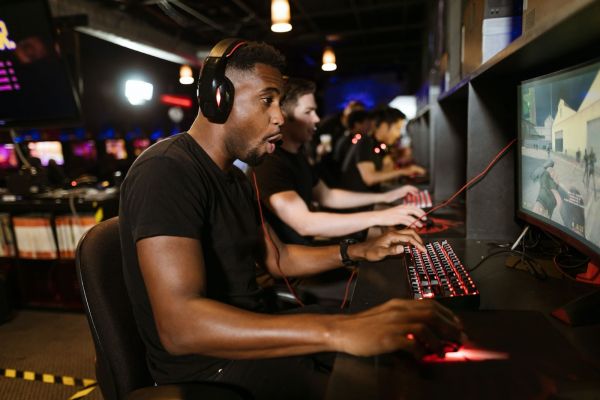How Social Gaming Changed

Whether it's video games, browser games, or any traditional, in-person game, the social aspect has always been a core part of the experience. Ever since the very first console games were released, developers have built games around the possibility of playing with friends or with strangers around the world.
However, the social aspect of various forms of gaming and digital entertainment has evolved markedly over the past decade. No longer is social gaming about sharing a controller with your friend on the couch. Instead, this aspect has developed in line with emerging technological and cultural trends. Let's take a closer look at the various ways that social gaming has changed over the years.
The death of couch co-op
One of the most noted and oft-complained about trends in recent years has been the dramatic death of the couch co-op. Once upon a time, local co-op games were the only game in town. Entire franchises were launched off the backs of classic couch co-op experiences such as Mario Kart, Crash Bandicoot, and Street Fighter.
The popularity of couch co-ops continued apace for decades, until falling off a cliff at the turn of the 2010s. Nowadays, perhaps one or two major releases per year will have any form of local co-op. Even couch co-op mainstays such as driving games no longer have a local functionality, instead offering online co-op only. Some have attributed this to the huge rise in popularity and accessibility of online co-ops, driven by the likes of Xbox Live. Others have argued that the split-screen format was always a pain for players, who did not want to compromise on graphics quality and immersive content for the sake of local co-op.
Of course, that's not to say that the format is totally dead. Some have predicted it is due for a comeback, referencing popular recent couch co-op titles such as It Takes Two or A Way Out. While these games might not be blockbuster hits, they could well be indicators of an emerging revival of the genre.
The rise of MMO
Across much of video gaming, all social interaction takes place in the MMO space. MMORPGs were undoubtedly the precursor to the current state of play, with the likes of Runescape and World of Warcraft introducing millions of people to the possibility of playing cooperatively and competitively with people anywhere in the world, at any time.
Soon after, the console shooters like Call of Duty and Battlefield brought the format to other types of gamers, with their online deathmatch offerings soon becoming the main reason to buy the game in the first place, rather than for the Campaign Mode. Today, we have the likes of Fortnite, League of Legends, and CS:GO, which are now the most popular and profitable enterprises in the world of gaming, with hundreds of millions of people worldwide playing online.
Livestream social games
While couch co-op is dead, other forms of social gaming exist outside of the sphere of video games. What we have seen in recent years is the emergence of live-stream game experiences, with real people coming together to play real games, all connected via a live video uplink.
Platforms such as Twitch and Discord have become gathering places for millions of people to play live board games such as Catan and Mysterium. In the world of online gambling, players are now opting for a social experience by playing live-stream casino games. To cite just one example of how this works in practice, Betway roulette features a real roulette dealer with a real wheel, which players can connect to from home. They can command the dealer to spin the wheel and place their bets, all while interacting with them via an on-screen chatbox. On top of this, we also have more analog-style games such as geocaching, which increasing numbers of players now broadcast online via live streaming platforms. Could this be the future of social gaming?
At its heart, gaming in all of its forms is an inherently social practice. Even those who only play video games for the story are likely to share their experience with friends or watch a YouTuber play through the tricky bits. While social gaming may be constantly evolving, it isn't going anywhere.